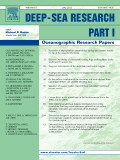
DEEP-SEA RESEARCH PART I-OCEANOGRAPHIC RESEARCH PAPERS
metrics 2024
Pioneering research in the realm of oceanography.
Introduction
DEEP-SEA RESEARCH PART I-OCEANOGRAPHIC RESEARCH PAPERS is a prestigious journal published by Pergamon-Elsevier Science Ltd, dedicated to advancing the field of oceanography. With an ISSN of 0967-0637 and E-ISSN of 1879-0119, this journal provides a vital platform for researchers, professionals, and students to disseminate and access high-quality, peer-reviewed papers on various aspects of oceanographic research. Recognized in the top quartiles of aquatic science and oceanography (Q1 and Q2 respectively), DEEP-SEA RESEARCH PART I boasts a significant impact factor and ranks impressively within the Scopus database, positioning itself as a leading resource in its field. Although it does not provide open access, it remains a critical repository of knowledge for those invested in understanding the complexities of marine environments. This journal plays a crucial role in enhancing our comprehension of deep-sea ecosystems, promoting innovative research, and fostering interdisciplinary collaboration.
Metrics 2024
 0.73
0.73 2.30
2.30 2.60
2.60 140
140Metrics History
Rank 2024
Scopus
IF (Web Of Science)
JCI (Web Of Science)
Quartile History
Similar Journals

Aquatic Biology
Diving into the Wonders of Aquatic BiologyAquatic Biology, published by INTER-RESEARCH, is a leading open-access journal dedicated to the scientific exploration of aquatic ecosystems, promoting innovative research in the fields of aquatic science, ecology, and oceanography since its inception in 2007. With an E-ISSN of 1864-7782, the journal publishes original articles, reviews, and data papers that contribute to the understanding of aquatic biology in its myriad forms. As of 2023, it holds a respectable Q3 ranking across multiple categories including Aquatic Science and Ecology, reflecting its sustained impact within the scientific community. Situated in Germany, Aquatic Biology operates a policy of open access since 2014, ensuring that valuable research findings are readily available to researchers, professionals, and students worldwide, thus fostering collaboration and knowledge dissemination. By addressing diverse aquatic topics, the journal plays a crucial role in advancing the study and conservation of marine and freshwater environments, making it an essential resource for anyone seeking to deepen their understanding of aquatic systems.

Hidrobiologica
Navigating the depths of ecological research.Hidrobiologica is a pivotal academic journal dedicated to the field of aquatic sciences and ecology, published by UNIV AUTONOMA METROPOLITANA-IZTAPALAPA in Mexico. With a commitment to fostering research from diverse ecosystems, this journal encourages the dissemination of knowledge spanning aquatic environments, ecological interactions, and marine biodiversity. Although classified in the Q4 category across various relevant fields such as Aquatic Science and Oceanography, Hidrobiologica is focused on increasing visibility and engagement among scholars by providing a platform for innovative research that addresses contemporary ecological challenges. The journal's address reflects its deep-rooted commitment to local and regional aquatic research, yet it aims to resonate with a global audience. Researchers, professionals, and students alike will find value in the journal's scope, which spans from 2007 to 2024, making it a valuable resource for understanding advancements in aquatic studies. While not an open-access journal, it continues to be a significant contributor to the academic dialogue in aquatic sciences.
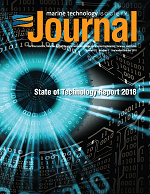
MARINE TECHNOLOGY SOCIETY JOURNAL
Connecting Research and Practice in Ocean SciencesMARINE TECHNOLOGY SOCIETY JOURNAL, published by the Marine Technology Society, Inc., serves as a critical forum for advancing the field of marine engineering and oceanography. With a rich history dating back to its inception in 1969 and continuing through various converged years until 2024, this journal is recognized for its contributions to the understanding of marine technologies and their applications. It currently holds a notable Q3 ranking in both Ocean Engineering and Oceanography, as per the 2023 metrics, underscoring its significance in these domains. Although access is not open, the journal rigorously assesses and publishes high-quality research articles, technical notes, and reviews that engage a wide readership of researchers, industry professionals, and students alike. With the journal's aim to disseminate innovative findings and foster dialogue within the marine community, it promises to be an essential resource for anyone looking to explore the dynamic field of marine technology.

Research in Marine Sciences
Advancing marine knowledge for a sustainable future.Research in Marine Sciences, ISSN 2538-5542, is a leading journal published by ARMAN DARYA INC, specializing in the dynamic and interdisciplinary field of marine science. With a commitment to advancing knowledge in areas such as marine ecology, oceanography, and marine conservation, this journal provides a collaborative platform for researchers, professionals, and students to disseminate their findings. Although it operates under a traditional subscription model, the journal ensures that the latest research is accessible to a wide audience, promoting the understanding of marine environments crucial for biodiversity and sustainability. The journal aims to bridge the gap between theoretical research and practical applications, emphasizing the need for rigorous studies that address pressing marine issues in a rapidly changing world. By contributing to the body of literature in marine sciences, Research in Marine Sciences plays a vital role in shaping the future of marine research and policy-making.
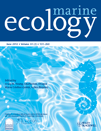
Marine Ecology-An Evolutionary Perspective
Exploring the Depths of Evolutionary InsightsMarine Ecology-An Evolutionary Perspective, published by WILEY, is a renowned journal dedicated to advancing the understanding of marine ecosystems through the lens of evolutionary biology. Established in 1980, the journal has firmly positioned itself as a vital resource in the field, currently boasting a 2023 Scopus rank of #337 in Ecology, Evolution, Behavior and Systematics and a Q2 category ranking in Ecology. With a focus on original research and reviews that encompass a broad spectrum of marine ecological studies, this journal critically examines the mechanisms driving marine biodiversity and ecosystem dynamics. Researchers, professionals, and students alike benefit from the journal’s comprehensive insights and robust analyses, which are pivotal for fostering ecological knowledge and informing conservation efforts. Although currently not an Open Access publication, the journal remains accessible through various academic platforms, inviting the scientific community to engage with its vital contributions to aquatic science and the evolutionary processes shaping our oceans. With an impressive trajectory that extends until 2024, Marine Ecology-An Evolutionary Perspective continues to set benchmarks in marine research.

MARINE AND FRESHWATER RESEARCH
Diving into the dynamics of ecosystems.Marine and Freshwater Research is a prestigious journal published by CSIRO PUBLISHING that serves as a key platform for the dissemination of cutting-edge research in the fields of Aquatic Science, Ecology, and Oceanography. With an impactful presence since its inception in 1948, the journal provides critical insights into the dynamics of freshwater and marine ecosystems, promoting interdisciplinary approaches that contribute to our understanding of biodiversity and sustainability. Currently ranked in the Q2 category across major scientific domains, including Ecology and Aquatic Science, it enjoys a robust academic reputation supported by impressive Scopus rankings, such as Rank #66/247 in Aquatic Science and Rank #44/145 in Oceanography, reflecting its high citation impact and relevance. While offering a subscription-based access model, the journal remains dedicated to fostering dialogue and innovation within the scientific community, aiming to bridge the gap between research findings and practical applications in environmental management. Located in Australia, Marine and Freshwater Research is an essential resource for researchers, professionals, and students dedicated to exploring the complexities of aquatic ecosystems and advocating for their preservation.
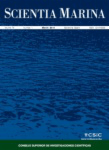
SCIENTIA MARINA
Advancing Marine Science for a Sustainable FutureSCIENTIA MARINA, an esteemed journal published by the Consejo Superior Investigaciones Cientificas (CSIC) in Spain, focuses on critical studies within the fields of Aquatic Science and Oceanography. With an Open Access policy since its inception in 1998, this journal facilitates widespread dissemination of research findings, significantly enhancing accessibility for researchers, professionals, and students alike. Currently, SCIENTIA MARINA holds a Q3 ranking in both categories for 2023, demonstrating its commitment to advancing knowledge in marine and aquatic environments. With a convergence of research years from 1996 to 2024, it remains a pivotal platform for innovative research, encompassing various aspects of marine biology, ecology, and environmental science. The journal serves as an essential resource for scholars aiming to contribute to the understanding and preservation of marine ecosystems.

Oceans-Switzerland
Exploring the Depths of Oceanic KnowledgeOceans-Switzerland, published by MDPI, is an esteemed open-access journal established in 2020, with a focus on providing a platform for the dissemination of high-quality research in the fields of Environmental Science and Oceanography. Based in the picturesque city of Basel, Switzerland, the journal seeks to foster a deeper understanding of oceanic processes and their implications for the environment through rigorous peer-reviewed articles. With an impact factor reflected in its 2023 Scopus rankings, placing it in the 56th percentile across its categories, Oceans-Switzerland continues to promote interdisciplinary collaboration and innovation, targeting a wide audience of researchers, professionals, and students keen on exploring the complexities of ocean systems. The journal's commitment to open-access policy ensures that groundbreaking research is available to a global audience, reinforcing its crucial role in advancing knowledge and shaping practices within the scientific community.

THALASSAS
Exploring the Depths of Aquatic KnowledgeTHALASSAS is a prominent academic journal specializing in the fields of Aquatic Science and Oceanography, published by Springer International Publishing AG. Established in 2005 and running through 2024, this journal serves as a vital platform for sharing groundbreaking research and innovative findings related to the marine environment and its ecosystems. With an ISSN of 0212-5919 and an E-ISSN of 2366-1674, THALASSAS is indexed in Scopus and currently holds a Q3 classification in both Aquatic Science and Oceanography for 2023, reflecting its relevance and contribution to these scientific disciplines. Although it does not follow an Open Access model, THALASSAS offers valuable insights for researchers, professionals, and students interested in sustainable ocean management and aquatic biodiversity. Its rigorous peer-review process ensures that published articles meet the highest standards of academic quality, fostering a deeper understanding of marine sciences and addressing critical issues facing aquatic systems today.
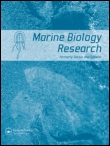
Marine Biology Research
Illuminating the wonders of marine life.Marine Biology Research is a premier journal published by Taylor & Francis, focusing on the dynamic field of marine biology and its intersecting realms of aquatic science, ecology, and oceanography. Since its inception in 2005, this journal has served as a crucial platform for researchers and professionals to disseminate their findings, with a vision extending to 2024 and beyond. The journal is recognized with a Q3 quartile ranking in both Aquatic Science and Ecology, Evolution, Behavior and Systematics, underscoring its growing influence in these fields as evidenced by its Scopus rankings. Located in the United Kingdom, Marine Biology Research aims to foster collaboration and innovation through open access options, facilitating knowledge exchange among the academic community. With a steady commitment to advancing marine sciences, this journal is an invaluable resource for those dedicated to understanding and preserving our ocean ecosystems.